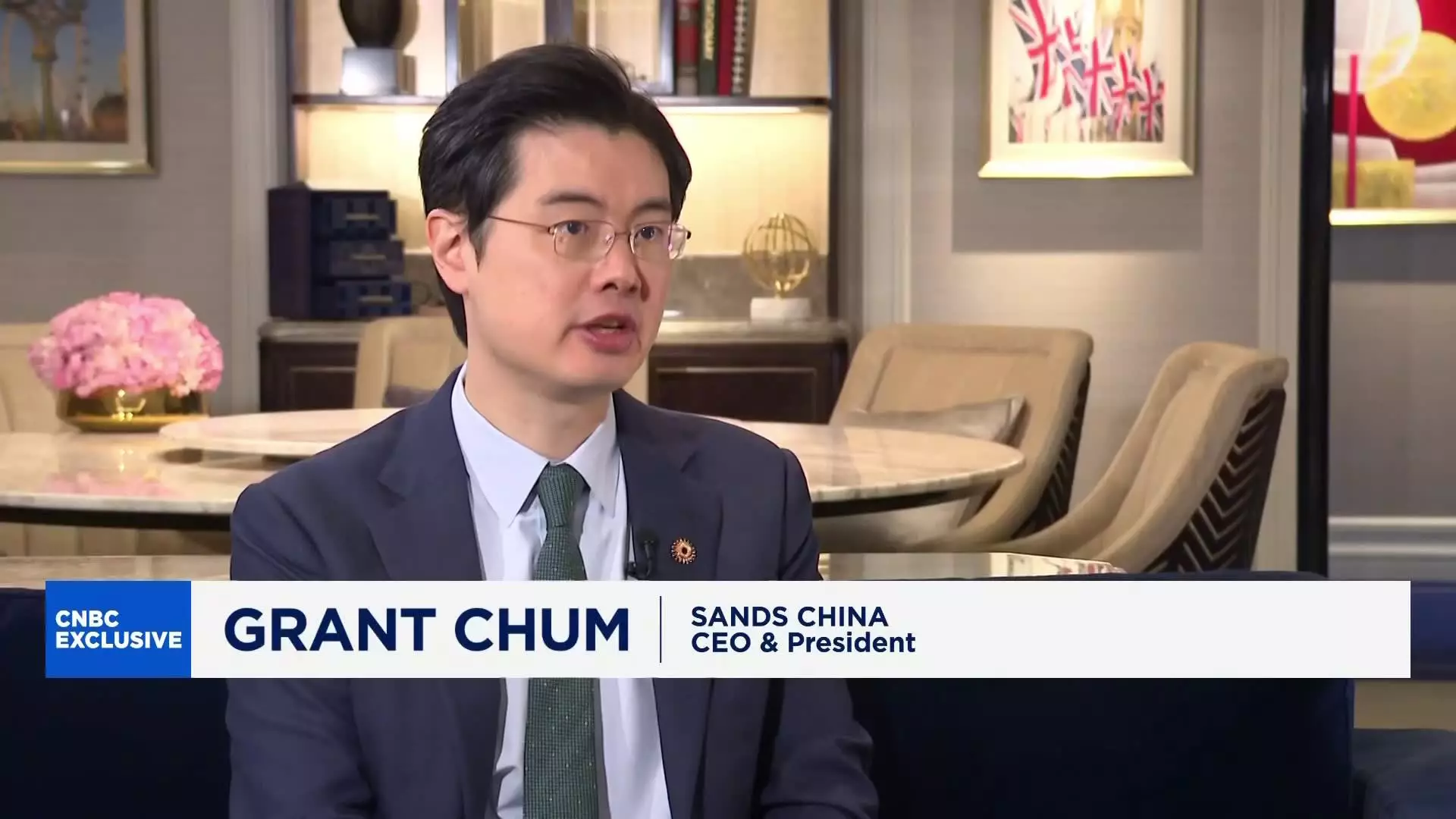Macao, traditionally renowned for its gambling industry, is at the brink of significant economic transformation, shifting its image to a vibrant hub of sports and entertainment. This pivotal change was emphasized during the recent visit of Chinese President Xi Jinping, as the city’s leaders announced plans to diversify their economy away from the dependency on gaming revenues. Sands China, under the leadership of CEO Grant Chum, is leading this charge by investing substantially in non-gaming ventures.
In a recent interview, Grant Chum articulated Sands China’s vision for Macao, revealing their plan to invest a staggering $4.5 billion in the city by the year 2032, with a notable 90% of this investment earmarked for non-gaming purposes. The recent partnership forged between Sands China and the National Basketball Association (NBA) to hold two pre-season games in Macao illustrates this new direction. Chum’s assertion that these games would not be mere one-off events but part of a long-term strategy encapsulates the city’s aspirations to build a sustainable and diverse economic landscape.
Collectively, the six major casino operators in Macao are rallying to elevate the region’s economic profile, with a combined commitment of nearly $15 billion towards reducing reliance on gambling. This commitment was made during the renewal of their gaming licenses in 2022, which were granted for ten years—half the previous duration—contingent upon substantial investments in diversification.
President Xi Jinping’s comments during his address in Macao underscored the urgency of this diversification effort. He articulated three key expectations, including the necessity for Macao to align with modern trends and to embrace reform and innovation. Moreover, the need for attracting foreign talent was highlighted, indicating that Macao must not only diversify its economy but also enhance its workforce and intellectual capital.
Moreover, this shift aligns with broader economic trends observed in special administrative regions, as they confront the challenges posed by over-dependence on a single industry. Allan Zeman, the non-executive chairman of Wynn Macao, echoed this sentiment, emphasizing the importance of proactive measures to create a more dynamic economic environment.
Significant infrastructure upgrades are already underway, with Chum highlighting the $200 million renovation of the Venetian Arena, previously known as the Cotai Arena. This state-of-the-art venue, which will launch the NBA pre-season games in 2025, is poised to accommodate a range of events, from concerts to international sporting competitions. It is anticipated that this new facility will not only enhance Macao’s appeal as an entertainment destination but will also play a pivotal role in fostering a broader cultural and sporting scene.
As these transformative investments unfold, Chum has expressed optimism about Macao’s recovery trajectory, noting that gaming revenues have rebounded to 80% of pre-pandemic levels. The resurgence in tourist arrivals—reaching pre-COVID figures—serves as a positive indicator for the local economy’s health. The recent 25th anniversary of Macao’s return to Chinese sovereignty serves as a symbolic moment for reflecting on the region’s growth and evolution.
While these initiatives present an exciting frontier for Macao, there are still challenges to contend with. The NBA deal, significant as it is, marks the first return of pre-season games to China since 2019, a period during which geopolitical tensions influenced sports broadcasting deals. Future collaborations with international sports organizations will play a critical role in shaping Macao’s international reputation.
Moreover, fostering an environment conducive to innovation and attracting global talent will require Macao to strengthen its educational and cultural institutions. As stakeholders work towards these ambitious goals, the partnership between government, corporations, and community will be essential in navigating the evolving landscape.
Macao is on a transformative journey that promises to redefine its economic identity from a gaming-focused enclave into a multifaceted destination for sports, entertainment, and broader cultural experiences. This strategic pivot encapsulates a progressive vision for the future, with the potential to establish Macao as a model of economic resilience and innovation.


Leave a Reply